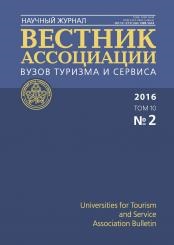The article highlights the problems of knowledge-oriented society development in Russia. According to the communication development policy concept of the Russian Federation, communication / information policy is to be viewed in terms of Russia’s transformation into a knowledge/information-oriented society. The concept identifies three priority areas and top goals which are major challenges to the process of building up a knowledge/information-oriented society, namely: (1) the development and implementation of a requisite technology base; (2) Russia’s close international cooperation in creating its strategy for a transition to a status of a knowledge/information-oriented society; (3) creating the social, economic and cultural conditions to facilitate the process of transition. The concept holds that the success of the transition towards a knowledge/ information-oriented society is dependent on the knowledge/information readiness of the society. The authors analyses the documentation and literature dealing with the stages of creating the concept of the state youth policy of RF and identifies the role of communication/information policy for the state youth policy as well as its newly-acquired features that evolved in response to globalization and knowledge/informationoriented society development. The author concludes that the informational localization of Russia’s younger population is accounted for by (1) the hard factors of their lifestyle, which coupled with high regional diversity and differentiation breed a great variety of thesauri, and (2) cementing network communities, which enable their members to satisfy their informational needs independently of the state or social structures.
information-oriented society, knowledge-oriented society, youth policy, informational localization sources
Сегодня очевидно, что Россия приближается к новой эпохе, ведущие черты которой будет определять информационное общество. Концепция государственной информационной политики Российской Федерации, одобренной на заседании Комитета Государственной Думы по информационной политике и связи 15 октября 1998 г., содержит специальный раздел «Актуальные проблемы построения в России информационного общества», в котором утверждается: «Государственную информационную политику следует рассматривать через призму перехода России к информационному обществу. В этом плане приоритетные направления и задачи Государственной информационной политики выступают как актуальные проблемы построения в нашей стране информационного общества». В Концепции выделяются три класса этих проблем: 1) проблемы развития технологического базиса информационного общества и перехода к нему; 2) проблемы взаимодействия России в построении своей стратегии перехода к информационному обществу в тесном взаимодействии с другими странами; 3) проблемы, связанные с созданием социально-экономических и социально-культурных предпосылок перехода России к информационному обществу.
1. Beck U. Chto takoe globalizatsiia? Oshibki globalizma - otvety na globalizatsiiu [What Is Globalization?]. Moscow.: Progress-Traditsiia, 2001.
2. Mal’kovskaia I. A. Setevoe obshchestvo [Network society]. Globalistika: entsiklopediia [Globalistics: an Encyclopaedia]. Moscow: OAO «Raduga» Publ., 2003.
3. Utkin A. I. Globalizatsiia [Globalization]. Globalistika: entsiklopediia [Globalistics: an Encyclopaedia]. Moscow: OAO «Raduga» Publ., 2003.
4. Rossiiskii statisticheskii ezhegodnik 2012 [Russian Annual Statistical Abstract: 2012]. Goskomstat Rossii [Federal State Statistics Service]. Moscow, 2012.
5. Castells M. The Rise of the Network Society. Malden (Ma.). Oxford. 1996.
6. Castells M. Materials for an exploratory theory of network society // Brit. J. of. Soc. 2000. № 51. pp. 5-24.





